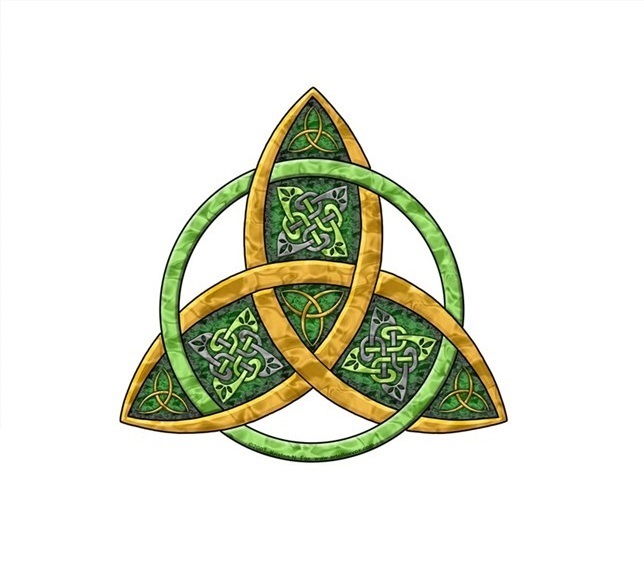
This Sunday marks Trinity Sunday, the day in the church year specifically set aside to focus on the incomprehensible reality that marks the Father, Son, and Holy Spirit--one God in three persons. Traditionally, as part of corporate worship on this Sunday, congregations recite the Athanasian Creed, a 6th or 7th century creed that confesses the beauty, wonder, and truth of our Trinitarian faith in short theses (positive statements) and antitheses (negative statements).
Though long, study of this creed by contemporary American Christians would ensure a level of doctrinal fidelity and truthfulness not presently widespread, and would protect us from heretical but popular ideas from the likes of Oneness Pentecostals like megachurch pastor T.D. Jakes and singers Philips, Craig, and Dean, who have been wishy-washy at best regarding just exactly what beliefs they hold.
For those critical of the both the length of this creed and the significance it gives to minute points of doctrine, I appeal to G.K. Chesterton, who famously quipped:
In all the mess of modern thoughtlessness, that still calls itself modern thought, there is perhaps nothing so stupendously stupid as the common saying, 'Religion can never depend on minute disputes about doctrine.' It is like saying that life can never depend on minute disputes about medicine.
Both theology and medicine are matters of life and death. I suggest we give them both the serious attention they deserve.
Whoever desires to be saved must, above all, hold the catholic* faith.
Whoever does not keep it whole and undefiled will without doubt perish eternally.
And the catholic* faith is this,
that we worship one God in Trinity and Trinity in unity, neither confusing the persons nor dividing the substance.
For the Father is one person, the Son is another, and the Holy Spirit is another.
But the Godhead of the Father and of the Son and of the Holy Spirit is one: the glory equal, the majesty coeternal.
Such as the Father is, such is the Son, and such is the Holy Spirit:
the Father uncreated, the Son uncreated, the Holy Spirit uncreated;
the Father infinite, the Son infinite, the Holy Spirit infinite;
the Father eternal, the Son eternal, the Holy Spirit eternal.
And yet there are not three Eternals, but one Eternal,
just as there are not three Uncreated or three Infinites, but one Uncreated and one Infinite.
In the same way, the Father is almighty, the Son almighty, the Holy Spirit almighty;
and yet there are not three Almighties but one Almighty.
So the Father is God, the Son is God, the Holy Spirit is God;
and yet there are not three Gods, but one God.
So the Father is Lord, the Son is Lord, the Holy Spirit is Lord;
and yet there are not three Lords, but one Lord.
Just as we are compelled by the Christian truth to acknowledge each distinct person as God and Lord, so also are we prohibited by the catholic* religion to say that there are three Gods or Lords.
The Father is not made nor created nor begotten by anyone. The Son is neither made nor created, but begotten of the Father alone.
The Holy Spirit is of the Father and of the Son, neither made nor created nor begotten but proceeding. Thus, there is one Father, not three Fathers; one Son, not three Sons; one Holy Spirit, not three Holy Spirits.
And in this Trinity none is before or after another; none is greater or less than another;
but the whole three persons are coeternal with each other and coequal so that in all things, as has been stated above, the Trinity in Unity and Unity in Trinity is to be worshiped.
Therefore, whoever desires to be saved must think thus about the Trinity.
But it is also necessary for everlasting salvation that one faithfully believe the incarnation of our Lord Jesus Christ.
Therefore, it is the right faith that we believe and confess that our Lord Jesus Christ, the Son of God, is at the same time both God and man.
He is God, begotten from the substance of the Father before all ages; and He is man, born from the substance of His mother in this age: perfect God and perfect man, composed of a rational soul and human flesh; equal to the Father with respect to His divinity, less than the Father with respect to His humanity.
Although He is God and man, He is not two, but one Christ:
one, however, not by the conversion of the divinity into flesh but by the assumption of the humanity into God;
one altogether, not by confusion of substance, but by unity of person.
For as the rational soul and flesh is one man, so God and man is one Christ,
who suffered for our salvation, descended into hell, rose again on the third day from the dead, ascended into heaven, and is seated at the right hand of the Father, from whence He will come to judge the living and the dead.
At His coming all people will rise again with their bodies and give an account concerning their own deeds. And those who have done good will enter into eternal life, and those who have done evil into eternal fire.
This is the catholic* faith; whoever does not believe it faithfully and firmly cannot be saved.
*NOTE: catholic = universal
© 2009, Concordia: The Lutheran Confessions, Second Edition, Concordia Publishing House.
Photo from Mythologian.net. No ownership is claimed or implied.
